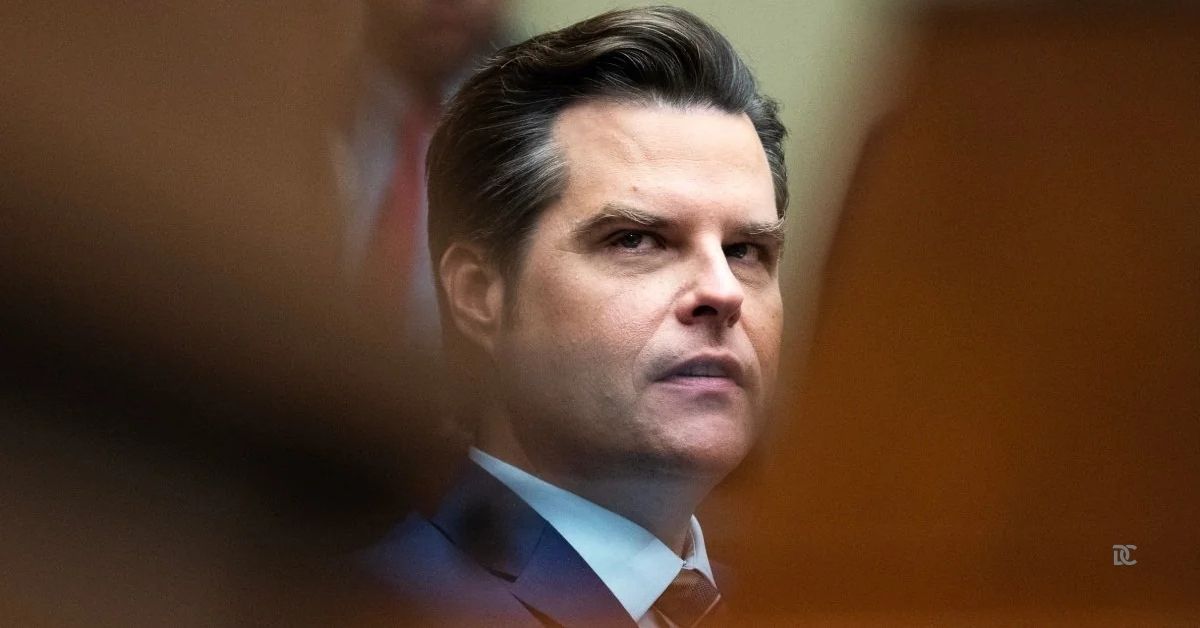A long-awaited House Ethics Committee report alleges that former Florida Congressman Matt Gaetz paid tens of thousands of dollars to multiple women for sex and drugs—and, in one instance, paid a 17-year-old girl for sex. This eye-opening document, obtained by several media outlets, marks the culmination of a years-long probe into Gaetz, who once served in Congress and briefly attempted to become President-elect Donald Trump’s attorney general.
The final draft of the panel’s report provides a detailed account of Gaetz’s alleged misconduct, including references to Florida’s statutory rape law. However, Gaetz has denied any wrongdoing—characterizing his past lifestyle as “embarrassing, though not criminal”—the Ethics Committee reached a starkly different conclusion.
Here’s what you need to know about the report, Gaetz’s response, and the broader implications of this high-profile political scandal.
The Ethics Committee Report at a Glance
- Multiple Acts of Alleged Misconduct: According to the House Ethics Committee, Gaetz violated numerous standards of conduct during his time in Congress. The panel says Gaetz’s actions involved prostitution, statutory rape, and impermissible gifts, among other infractions.
- Payments for Sex and Drugs: The committee found that Gaetz personally made payments—frequently via digital platforms like Venmo, PayPal, or CashApp—to more than a dozen women. In some cases, Gaetz’s then-girlfriend allegedly acted as an intermediary in arranging sexual encounters. The report also details moments when Gaetz and others used illegal drugs, such as ecstasy and cocaine, during these encounters.
- The Bahamas Trip: A 2018 group excursion to the Bahamas looms large in the committee’s findings. Investigators cite women who said the trip itself served as “payment,” with Gaetz covering expenses in exchange for sexual activity. One participant told the committee Gaetz used ecstasy while on the island. The panel also states this trip violated House gift rules.
- A 17-Year-Old Girl: In perhaps the most serious allegation, the committee references an incident in July 2017 in which Gaetz allegedly had sex twice with a then-17-year-old girl at a party in Florida. The woman told the committee she was paid $400 in cash, which she believed to be compensation for sex. She also testified that she saw Gaetz using cocaine and that she herself was under the influence of ecstasy. According to the report, Gaetz did not ask about her age. Investigators did not find direct evidence Gaetz knew she was a minor.
- No Federal Charges—But State Law Violations: While the panel believes Gaetz broke Florida state statutes, such as the state’s statutory rape law, the committee did not conclude that he violated federal sex-trafficking laws. In part, investigators said there was insufficient proof that these sexual encounters involved force, fraud, or coercion. Meanwhile, the U.S. Justice Department had previously investigated Gaetz for sex trafficking but ultimately declined to press charges in 2023.
A central figure in Gaetz’s alleged wrongdoing is Joel Greenberg, the former Seminole County tax collector who is now serving an 11-year prison sentence for various crimes, including sex trafficking. Greenberg reportedly cooperated with federal investigators and informed them—and later House investigators—about his role in arranging “sugar-daddy” type encounters. According to the committee, Gaetz was aware that women he met through Greenberg were often paid for sex and recruited via a site called SeekingArrangement.com.
Also Read
Text exchanges cited by the committee show Greenberg coordinating with women who, for instance, set a “$400 per meet” rate. Gaetz or Greenberg would then send photos of themselves, plan drug use, and negotiate gatherings, sometimes inviting more women if “the guys wanted more company.”
The House Ethics Committee concluded that at least one such transaction involved a 17-year-old, referring to the 2017 party.
Matt Gaetz’s Response
Gaetz has long maintained that he never engaged in any illegal activity, especially not sex with minors. After the committee’s findings became public, Gaetz posted on X (formerly Twitter) that he “NEVER had sexual contact with someone under 18” and characterized his past relationships and financial transactions as personal matters, not criminal ones.
He also wrote that, during his single days, he often sent money to women, including some he dated for years and others who simply asked for financial help. Although he admitted to “partying, womanizing, drinking, and smoking,” he claimed he’s turned a new leaf.
According to Gaetz, the House Ethics Committee’s final draft unfairly paints him as a predator while ignoring that the Justice Department chose not to indict him.
Why the Report Was Released—Despite Gaetz’s Resignation
Initially, the House Ethics Committee voted against making its findings public, particularly after Gaetz resigned last month following President-elect Donald Trump’s ill-fated attempt to nominate him as attorney general. Gaetz’s departure and the collapse of his confirmation bid seemed to quash interest in releasing an ethics investigation on a no-longer-serving member.
However, the committee reversed itself earlier this month and chose to publish the final draft report. The vote was reportedly contentious: Chairman Michael Guest (R-Miss.) opposed releasing the document, arguing it could appear as if the committee’s process was being “weaponized” against someone who is no longer in Congress. Despite that pushback, a majority favored transparency, stating that the gravity of the allegations—plus the multi-year investigation—warranted public disclosure.
It’s relatively rare for House Ethics to put out a formal report about a resigned member, but there is precedent. Some lawmakers suspect Gaetz timed his departure from Congress to avoid the public fallout from these findings. In the end, the panel felt that the seriousness of the evidence overcame any misgivings about setting a new precedent.
Political Implications
- Gaetz’s Post-Congress Career: Gaetz is now slated to join One America News Network (OANN) as a conservative anchor. The House Ethics revelations could complicate his reputation in right-wing media, though Gaetz appears undeterred, continuing to claim innocence and stating that the Justice Department’s choice not to prosecute him is proof that he’s done nothing criminal.
- Trump Administration Angle: Gaetz had been Trump’s initial pick for attorney general, a role that would have made him chief law enforcement officer of the federal government. Widespread GOP opposition in the Senate scuttled Gaetz’s confirmation chances, and CNN had already begun airing details from the same House Ethics investigations. Now, the official release cements a record of allegations likely to further tarnish Gaetz’s image.
- A Rare Window into Congressional Investigations: Ethics investigations often operate behind closed doors. This final draft’s release gives the public a close look at how House investigators build a case—citing text messages, financial records, and witness statements from women and associates. It underscores the expansive power congressional committees can wield when they decide to delve into a lawmaker’s private life and professional conduct.
- No Federal Charges, But Serious Allegations: While House investigators found substantial evidence of state-level statutory rape violations, they reaffirmed that the federal government—after a multi-year probe—declined to indict Gaetz under federal sex-trafficking laws. Critics argue that failing to charge Gaetz at the federal level does not erase moral or ethical lapses, especially involving minors and illegal drug use. Gaetz’s defenders point to the lack of federal prosecution as vindication.
- Public Reaction and Next Steps: It remains to be seen whether any state authority in Florida will consider new charges based on the House Ethics report. The woman, who was 17 at the time of her alleged sexual encounters with Gaetz, told investigators she was under the influence of ecstasy and believed Gaetz was doing cocaine. Whether additional evidence might prompt state prosecutors to revisit the case is unclear.
The House Ethics Committee’s final draft report on Matt Gaetz is deeply damning, outlining allegations of statutory rape, prostitution, drug use, and “impermissible gifts.” Gaetz adamantly denies the gravest claims, emphasizing that federal prosecutors chose not to indict him. Still, the panel’s decision to release their findings—despite his resignation—underscores the seriousness of the matter.
Gaetz is now embarking on a new career path in conservative media, a move that draws both curiosity and controversy. While many across the political spectrum insist that he should have faced harsher consequences, others remain unconvinced of his guilt. The situation illustrates the complexities of ethics investigations and the challenges of balancing due process with the public’s desire for accountability, especially when a politician leaves office before the full story becomes public.
For now, Gaetz appears resolute in denying the allegations, but the House Ethics Committee’s detailed report stands as a formal condemnation of his behavior—one that could follow him for years to come.






